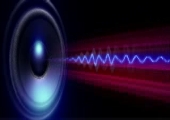"Working with sound: language, music and beyond..."
Oxford, 5 March 2011
There are many disciplines that work with sound. Each has developed its own set of methodologies over the years, often developing quickly with rapid advances in technology. The aim of this workshop was to bring together Oxford researchers who work on sound from different theoretical and methodological perspectives. The workshop consisted of several keynote lectures and a poster session.
Workshop materials on Oxford Research Archive
Workshop programme
4 March: Special session on Basics of Sound Recording and Processing
Venue: Oxford University Computing Services
Time: 2-5 pm
This three-hour session the day before the main worskshop provided participants with skills for creating recordings as part of research, focusing on the most common recording methods, equipment, and software used by academic researchers. It was intended for people without specialised training in sound recording, who would like to gain skills to use in their research. Some of the topics covered included:
- Signal Path: choosing a file format to record to, microphones and microphone placement, location-specific issues
- Software: Audacity. Introduction to this free software, including the functions available on the editor and tool palette.
- Processing: Normalising, equalizing, compression, reverb
- Exporting files: the right choice for your intended purposes.
5 March: Main workshop
Venue: Taylor Institution
09:30 — 10:30 - Registration, coffee, posters.
10:30 — 11:30 - Eric Clarke (Oxford University Faculty of Music), "Sound, music, meaning" [pdf] [ppt with sound]
11:30 — 13:00 - Oral presentations about posters (See posters on ORA)
13:00 — 14:00 - Lunch
14:00 — 15:00 - John Coleman (Oxford University Phonetics Laboratory), "First steps in digital signal processing" [pdf]
15:15 — 16:15 - Dave De Roure (Oxford e-Research Centre), Web-scale music analysis
16:15 — 17:00 - Poster session and coffee
17:00 — 18:30 - Aaron Fox (Columbia University), "Bringing the songs back home: community-partnered repatriation of Native American music."
Download workshop program in pdf
Poster presentations
- May Chan, Analysing consonantal speech sounds: a sociophonetic approach
- Steven Chance, Chimpanzee-human neuro-anatomical differences in auditory association cortex
- P. Garcia-Bellido, A. Benitez-Burraco, K. Park, B. Molineaux, Timing the integration of utterance duration and task shift in a case of genetic anomaly implicating 7q31 with language disorders.
- Rob Godman, David Mapp and Lee Richardson. The making and performance of Alyona
- Grace de la Flor and Marina Jirotka, Understanding observable order for software design: using the tools and techniques of conversation analysis
- Sergio Grau, Automatic Speech-to-Phoneme alignment of the Spoken British NationalCorpus
- Marinda Hagen, The effect of singing on the Perception of Dutch-accentedness in English
- Lauren Hall-Lew, Sound and Sociophonetics
- Zoe Handley, Second Language Speech Learning
- Greg Kochanski, Ladan Baghai-Ravary, andJohn Coleman, A Phonologically-CalibratedAcoustic Dissimilarity Measure.
- Alexander Krasovitsky, Sound change across generations: evidence from North Russia
- Noel Lobley, Recording and remembering the sounds of Africa: ethnomusicology, sound archiving and sound elicitation
- Anastassia Loukina and Greg Kochanski, Measuring linguistic rhythm
- Kevin R. Page. Linked Data, e-Research, and Music Information Retrieval
- Zeynab Raeesy, Acoustic-to-Articulatory Inversion based on Dynamic MRI
- Jonathan Roberts, Sounding Authentic: Helping English People Sing Javanese
- Duncan Williams, Evaluating timbre in location recordings
Download poster abstracts or visit the workshop website on ORA
Organizing Committee:
Anastassia Loukina, Phonetics Lab
Anna Stirr, Faculty of Music
Lauren Hall-Lew, University of Edinburgh
Sergio Grau, Phonetics Lab
The workshop is sponsored by the Career Development Fund, Humanities Division, University of Oxford.

